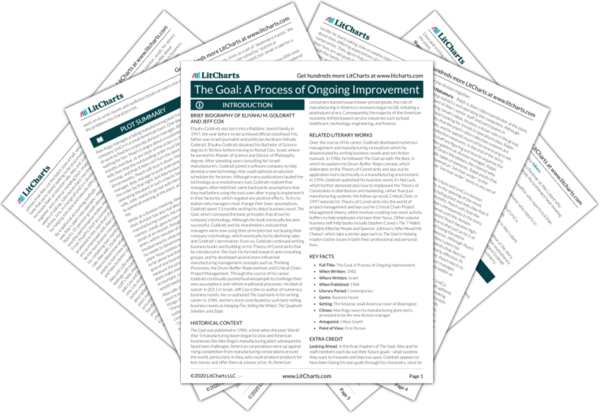AI ToolsNew
Tools to make learning and teaching easier
|
Previous
Chapter 10
|
The Goal: A Process of Ongoing Improvement: Chapter 11 Summary & Analysis |
Next
Chapter 12
|


Upgrade to unlock the analysis and theme tracking for all of The GoalThe Goal: A Process of Ongoing Improvement!
Get LitCharts A+